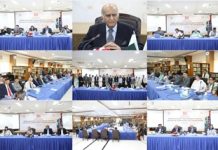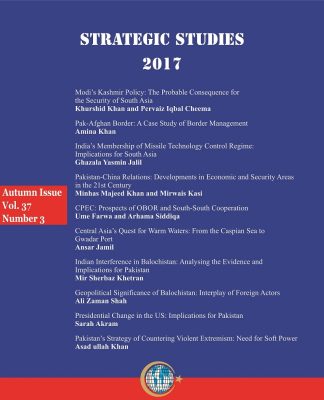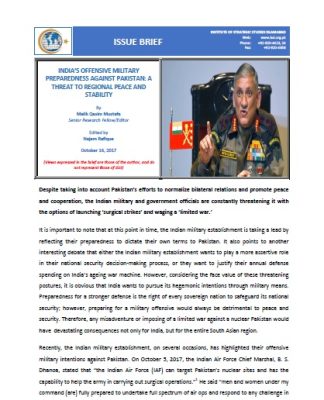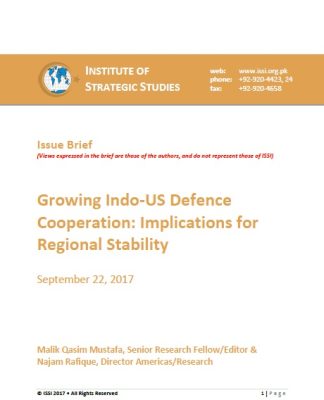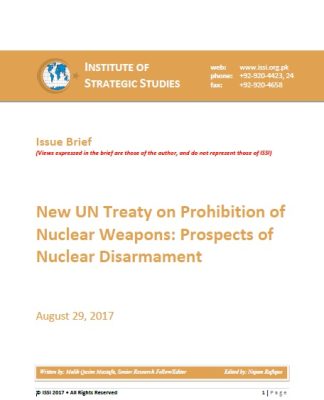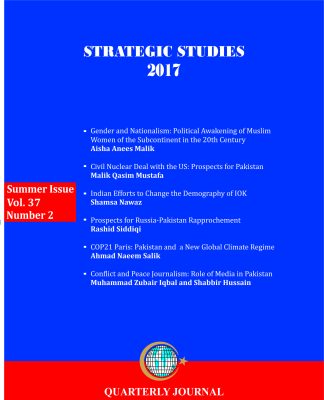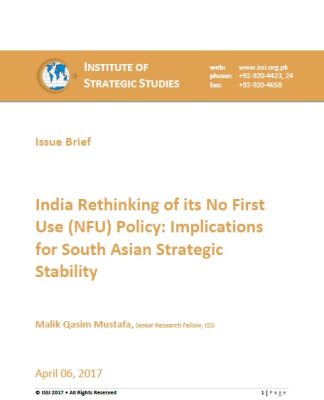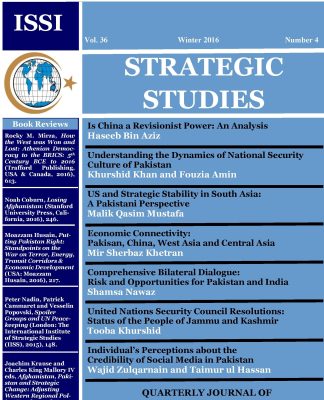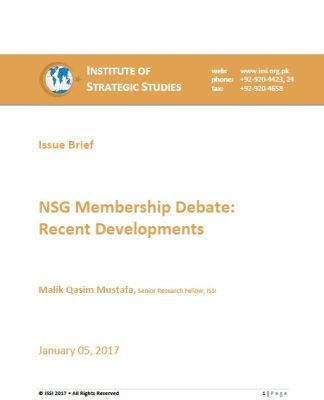Malik Qasim Mustafa
India Pakistan Nuclear Diplomacy: Constructivism and the Prospects for Nuclear Arms Control and Disarmament...
In recent years, the traditional hostility between the two South Asian nuclear neighbours, Pakistan and India, has increased tremendously. Aimed at their deep-rooted territorial...
Issue Brief on “India’s Offensive Military Preparedness against Pakistan: A Threat to Regional Peace...
Despite taking into account Pakistan’s efforts to normalize bilateral relations and promote peace and cooperation, the Indian military and government officials are constantly threatening...
Issue Brief on “Growing Indo-US Defence Cooperation: Implications for Regional Stability”
Since the events of 9/11, the US has started to reorient its relationship with India by characterising it as “world's, largest democracy with shared...
Issue Brief on “New UN Treaty on Prohibition of Nuclear Weapons: Prospects of Nuclear...
Since the advent of nuclear weapons technology, the international community has made several attempts to control its spread and pursued the broader objectives of...
Civil Nuclear Deal with the US: Prospects for Pakistan
Abstract
Pakistan has emerged as a responsible nuclear weapon state by developing strong credentials in the fields of nuclear safety, security, stability, and has developed...
The A. Q. Khan Network: Causes and Implications. Great Britain: Amazon, 2016.
In 1974, when India conducted its so called Peaceful Nuclear Explosion (PNE), Pakistan’s threat perception vis-à-vis India increased manifold. Pakistan’s desire to counter India...
Issue Brief on “India Rethinking of its No First Use (NFU) Policy: Implications for...
To safeguard national security interests, several states have developed nuclear weapons capabilities and have devised their nuclear policies and doctrines to deter adversaries. Due...
US and Strategic Stability in South Asia: A Pakistani Perspective
Abstract:
The dynamics of strategic stability in South Asia are facing tremendous challenges. The troubled bilateral relations of India and Pakistan and external influence of...
Issue Brief on “Pakistan’s Second Strike Capability: A Step Towards Deterrence Stability in South...
Developing a nuclear triad capability is one of the key components for a responsible nuclear weapon state like Pakistan to enhance the stability of...
Issue Brief on “NSG Membership Debate: Recent Developments”
The debate over extending membership of Nuclear Suppliers Group (NSG) to non-NPT nuclear weapons states, particularly to India and Pakistan has been intensified lately....




